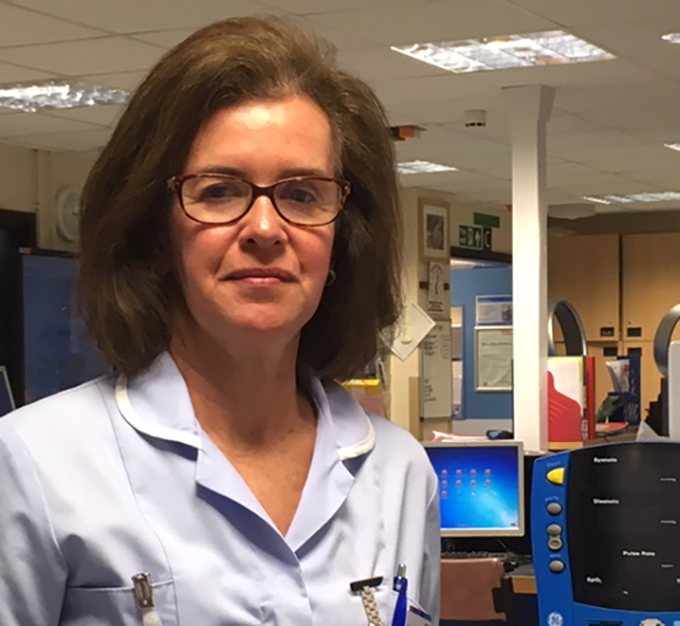The UK is crippled by nurse shortages. But nurses who’ve trained overseas find it hard to register here. Kim Scott explores the issues as the RCN continues to work towards a solution
Natasha is a British national. She moved to South Africa in her teens and completed her nurse training there. But after coming back to the UK and having children she attempted to join the Nursing and Midwifery Council (NMC) register.
“I think it’s the most frustrating thing I’ve ever done,” she says. “You ring for advice and they say you must email. You email and they take five days to respond. You email back because you have more questions and the delays go on and on.”
It's the most frustrating thing I've ever done. The delays go on and on
In the end it took Natasha two years to get on the register. But other overseas nurses don’t make it that far. Sabina worked as a nurse in Brazil for 17 years and was a ward sister before moving to the UK. Despite studying for the English language test, she failed three times when she first arrived.
“Then I gave up,” she says. “I’m older so I decided to accept my lot and continue to work as a health care assistant. It’s been 10 years now and I thought that was it for me. But last summer my trust was offering to help internationally recruited nurses train for the test. I did more studying but failed again, as did all but one of the other nurses.”
After speaking with Sabina, I was interested to learn more about why her language skills were judged insufficient. I investigated the International English Language Testing System (IELTS) – one of the tests accepted by the NMC which meets the standard set by other health care regulators.
I downloaded a sample reading test. It was about introducing non-native varieties of dung beetle to Australia and required an understanding of complex information about their preferred climate, complementary species and reproduction cycle. As a native English speaker and journalist, I found it tough.
But this is a challenging area for the NMC. There is no clear evidence on what good English testing looks like. Therefore, reforming the test, from a patient safety perspective, is difficult – and many overseas nurses may continue to struggle.
The test is too academic and not contextual. Rather than reading something and understanding the meaning of it to pass, you have to be able to translate every word
“The test is too academic and not contextual,” says Sabina (pictured below). “Rather than reading something and understanding the meaning of it to pass, you have to be able to translate every word. If they tested you in a hospital environment, in the context of what you would need to do, it would be much better. In the test situation, in unfamiliar surroundings, it makes you nervous and you fail.”

Making changes
After listening to the views of stakeholders, including those expressed during workshops hosted by the RCN last year, the NMC has revised the pass mark for the written part of the IELTS test.
It now also accepts a pass in the Occupational English Test (OET), designed specifically for people working in health care.
Even so, it’s the perceived red tape and lack of flexibility that many overseas nurses complain about when applying to register with the NMC.
Natasha, for example, was also required to pass the IELTS test despite being a British national. She was told all candidates who trained outside the EU had to sit the test regardless of their nationality. “It was just another hurdle to jump,” she says. “As well as being expensive, it was unnecessary.
“I also don’t understand why the NMC can’t communicate directly with other international nursing regulators.
“Instead, you’re forced to play the middle man, going back and forth trying to get hold of paperwork to send from one to the other.”
I'd never failed a nursing test before. There was no moderation, simply an assessment of whether I ticked a box. I was shocked
Reviewing the registration process
It’s these sorts of experiences the NMC is now keen to capture as it reviews its entire registration process for nurses and midwives trained outside the European Economic Area (EEA).
“The process needs to be made smoother,” says Christian Beaumont, International Adviser at the RCN. “The NMC has already taken steps but with tens of thousands of nurse vacancies, it can’t remain the case that qualified international nurses come to the UK and are inhibited from practising.
“The system must be rigorous to ensure patient safety but members tell us there are too many obstacles to registration currently.”
One challenge is the Objective Structured Clinical Examination (OSCE). The pass rate for this notoriously difficult practical test varies widely between employers and is linked to their preparation of candidates.
There is also variation in the pass rate at different OSCE test centres, an issue raised by RCN members last year that the NMC is keen to address through the introduction of competence assurance panels.
“I’d never failed a nursing test before,” says Natasha (pictured below). “I was shocked.”

After driving three and a half hours to her nearest test centre, one of just three in the whole of the UK, Natasha was put through her paces at six “stations” testing competence using simulated patients in a clinical setting.
Four stations tested knowledge and understanding of assessment, planning, implementation and evaluation of care. The remaining two tested clinical skills. Natasha failed on three minor points.
“It’s right that safety is paramount but there was no moderation, simply an assessment of whether I ticked a box. At £992 to take, it was a hard way to learn what was required.”
Changes made recently by the NMC meant Natasha was only required to retake the sections she failed. The regulator has also reviewed the cost of its practical tests and will be reducing the fees by 20% from April.
Natasha’s now a registered nurse in an anticoagulant clinic. “I love my job but could so easily have given up,” she says. “Safety comes first but the NMC must be more practical.”
Are you an overseas nurse struggling to register here?
The NMC is running webinars to help applicants prepare for the introduction of a new system for registration and share their views on a proposed new approach.
They are being held on 2 May and 23 May.
Workshops are also being held across the UK for those involved in recruiting and training nurses, midwives and nursing associates from overseas. They are on:
29 May, Belfast
13 June, Edinburgh
20 June, Cardiff
25 June, London
27 June, Manchester
Find out more about the RCN's international work.








